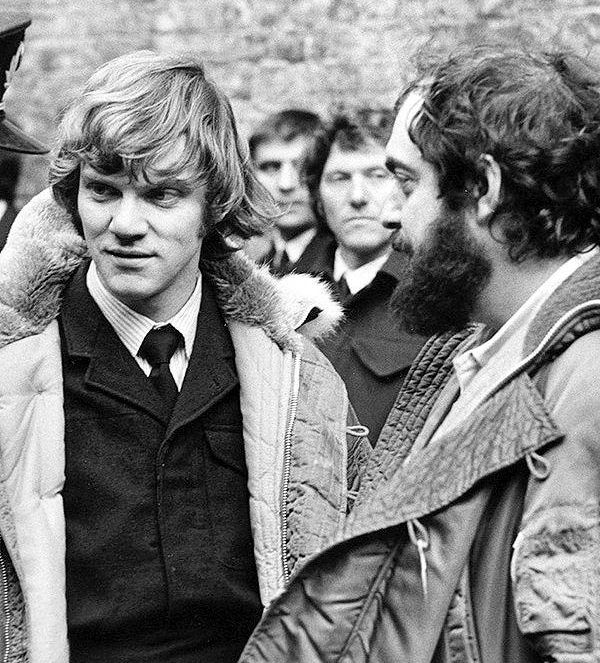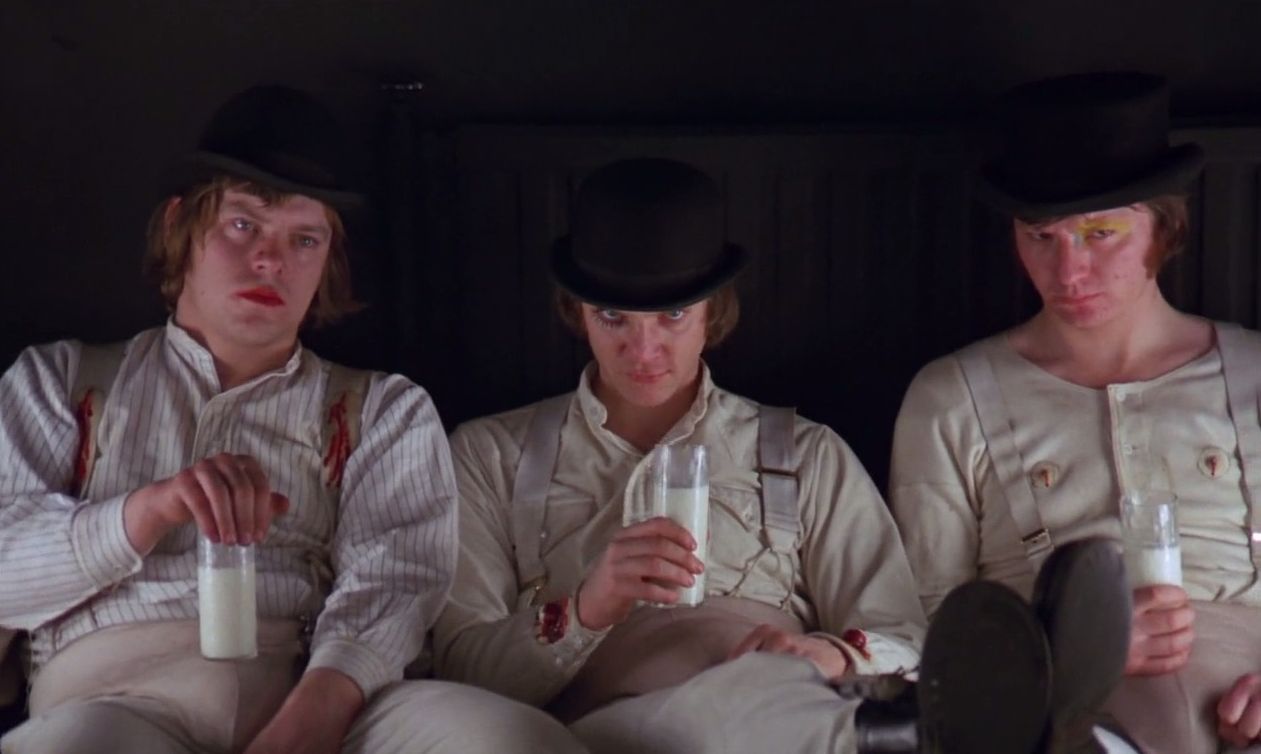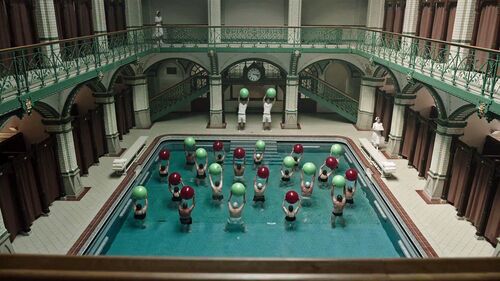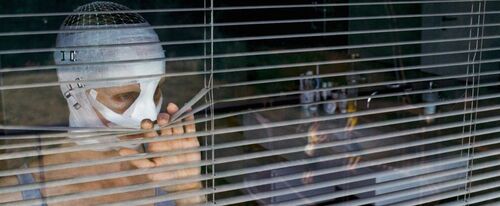
A Clockwork Orange- Artfully Revolting
 Oh, my little brothers, this film was an artistically wild ride. From start to finish, this tale of a dystopian British future was continually shocking and left the hairs on its audience's chins erected full-fold in utter disturbance and disbelief. The opening scene pictures a group of four 'droogs': Alex, their leader; Georgie, Alex's subsequent adversary; Dim, a beetle-brained follower; and Pete, a silent disciple. The droogs relax at an obscene milk bar where they drink substance-laced dairy and discuss how they fancy to spend their evenings, usually boiling their decisions down to some form of "the ultra-violence." Whether it involves rape, assault, or simply vandalism, the teenage hoodlums embark on quests to please themselves at any cost and commit any heinous crime regardless of the consequences they ensue.
Oh, my little brothers, this film was an artistically wild ride. From start to finish, this tale of a dystopian British future was continually shocking and left the hairs on its audience's chins erected full-fold in utter disturbance and disbelief. The opening scene pictures a group of four 'droogs': Alex, their leader; Georgie, Alex's subsequent adversary; Dim, a beetle-brained follower; and Pete, a silent disciple. The droogs relax at an obscene milk bar where they drink substance-laced dairy and discuss how they fancy to spend their evenings, usually boiling their decisions down to some form of "the ultra-violence." Whether it involves rape, assault, or simply vandalism, the teenage hoodlums embark on quests to please themselves at any cost and commit any heinous crime regardless of the consequences they ensue.
Background on the Film's Release

Despite receiving death threats and warrants on his and his family's lives, director Stanley Kubrick decided to allow American theaters to air "A Clockwork Orange." Due to its constant explicit material and violent spurts of rape and murder, this movie garnered fear in the UK's citizens and eventually, and rightfully so, received the rare 'X' rating, a step above 'R,' from the MPAA.
The Theme
What many fail to understand, possibly because of the undeviating sadism in the film, is the subliminal message and satirical undertone that it entails. Many people choose to interpret the themes of this movie differently. Personally, I like to use a quote from one of Kubrick's later films, "Full Metal Jacket," to help understand the concept of experimentation in coherence with Alex's character throughout the film. In FMJ, Private Joker, played by Matthew Modine, wears a button engraved with a peace sign, contrasting his helmet which reads "born to kill." When asked why he wears two accessories with opposite messages, he replies "I think I was trying to suggest something about the duality of man, sir."
What Joker is trying to portray is how man can be both good and evil, yet as we see the events in FMJ unfold, we see how one side often times may outweigh the other. As I was watching "A Clockwork Orange," I noticed a similar character path in Alex. While in FMJ the dividing line was the Vietnam conflict, the authoritarian experimental government examined in "A Clockwork Orange" plays the same role. After undergoing treatment for his criminal, epidemic behavior, Alex no longer has the choice to perform acts of evil, and that inevitably brings into question freedom of choice. However, as the film progresses, Alex continues his will to act out, even though he physically cannot carry out his wish.
Eventually, he attempts suicide and the final scene of the movie depicts him amiably flirting with the very government that took away his freedom in the first place, all while having crude sexual intercourse in his mind. What this proves is how the root of each human being will prevail, in spite of any attempts, whether personal or otherwise, to alter the soul. Being an early 70's film, this theme was created in such a bizarre, repulsively imaginative manner that it achieved its goal to prove that society and humanity have unsolvable issues using a fascinating futuristic contrast. Final decision: 10/10.


